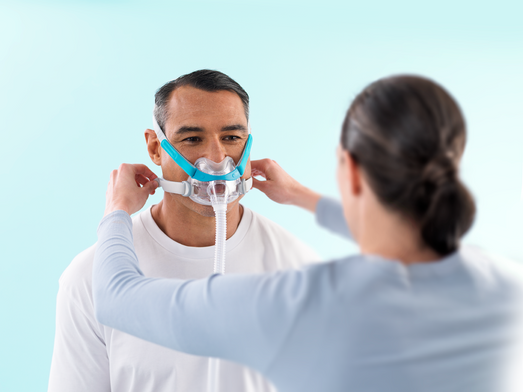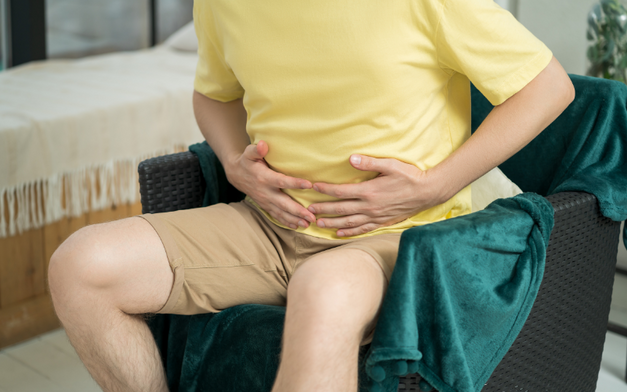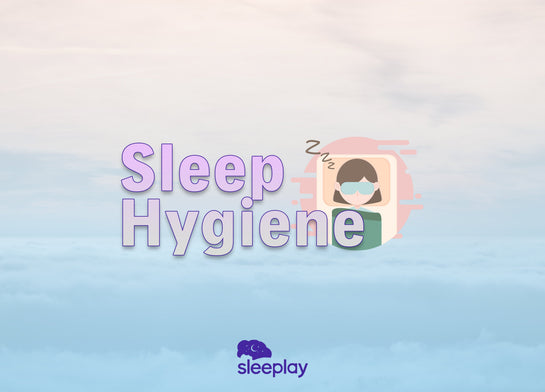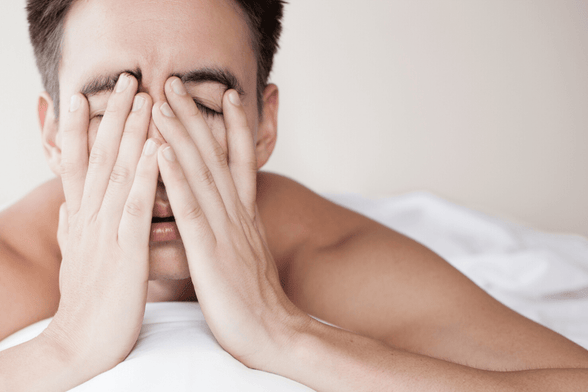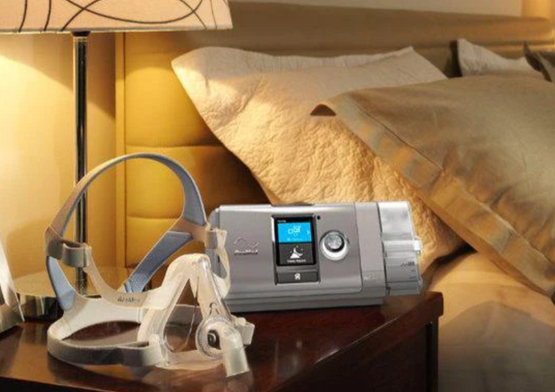Essential Oils for Sleep Apnea
Essential oils have been around for hundreds of years and have been used by various cultures to get rid of or improve certain ailments. They would steam or ground certain parts of plants like the bark or roots, flowers, and leaves to extract the oils. These oils would then be used in natural remedies to alleviate any symptoms the person may be having. This practice is now called aromatherapy and it is still used today.
Many essential oils used for aromatherapy and remedies have anti-inflammatory properties and they can also help with nasal congestion and even the common cold.
What are Essential Oils and How do I Use Them?

Essential oils are natural oils that are extracted from plants by a distillation process. Essential oils are usually used in aromatherapy for relaxation or they can be used simply to make a space smell amazingly and promote general wellness. Many people use essential oils for home remedies as well, but did you know that essential oils can help improve your sleep apnea symptoms? Many essential oils have sedative properties which can help with falling asleep and staying asleep as well as reducing anxiety.
Essential oils can be used in a variety of ways. You can add the oil to a bath 90 minutes to an hour before going to sleep. Another way you can use essential oils is with a diffuser which will help disperse the fragrance throughout the room. If you a perfume lover, you can add some drops of your favorite essential oil to a spray bottle with water and create your own mist spray.
You can also apply it topically but make sure you dilute the oil with a carrier oil such as coconut oil or olive oil before applying since essential oils are highly concentrated and may irritate your skin as a side effect. Another method that can be used as a homeopathic solution for a sore throat is to gargle with some drops of lemon oil diluted in a glass of water.
What are the Best Essential Oils for Sleep Apnea?
It can be overwhelming researching different kinds of essential oils to see if they have properties that can help with treating sleep apnea symptoms but luckily for you reader, that is why we are here.
Since there is a wide variety of essential oils out there we narrowed it down to the best essential oils for obstructive sleep apnea:
Lavender: Lavender essential oil can help promote melatonin production which can help you fall asleep faster. It can also help with snoring.
Eucalyptus: Eucalyptus oil can help break up mucus in your sinuses and airways. Eucalyptus oil can be used in combination with other essential oils to create what is known as an essential oil blend.
Chamomile: Chamomile oil can help promote relaxation and can reduce stress. Chamomile can have a sedative effect and it can be diffused, applied to the skin or the flower can be used to brew a tea.
Marjoram: Marjoram oil can help break up the mucus that may be obstructing your airways at night.
Peppermint: Besides smelling like a Christmas candy cane, peppermint essential oil has anti-inflammatory purposes and peppermint oil can help clear your sinuses and airways for better sleep.
Valerian: Valerian oil has strong sedative effects that can help reduce anxiety which can lead to you falling asleep faster and staying asleep longer.
Geranium: Geranium oil can help reduce anxiety and relax you into a comfortable sleep.
Lemon: Lemon oil can reduce the intensity of your snoring and how frequently you snore. Lemon oil also has antispasmodic properties, meaning that it can be used to relieve a muscle spasm. It can also be applied to the nasal passages (in a diluted form) for added moisture and to clear infections.
Roman Chamomile: Roman Chamomile oil can be beneficial for those suffering from central sleep apnea since it can help relax your central nervous system. It also helps minimize symptoms of sleep apnea so you can have a good night's sleep.
Bergamot: Bergamot oil can be extremely beneficial to anyone with sleep apnea. It slows your heart rate and lowers your blood pressure. Bergamot oil has sedative properties and can help with anxiety.
Clary Sage: Clary Sage oil is known to have anti-depressant effects. It is a natural sedative and can reduce cortisol which is the hormone associated with stress.
Valerian Root: This is not an essential oil but brewing a tea using the Valerian Root can help you fall asleep faster because of its sedative effects.
Thyme: Thyme essential oil has antimicrobial, anti-fungal, and anti-aging properties. It has been known to help clear your airways as well as soothe your cerebral cortex which can help those who have central sleep apnea.
Clove: Clove oil can loosen or break up phlegm obstructing the back of your throat.
Pine: Pine oil has antimicrobial and antioxidant properties. It can be used to massage sore muscles or joints before bed. It has also been used to combat insomnia.
Side Effects of Essential Oils
Essential oils can be extremely helpful when dealing with sleep apnea symptoms as well as many other ailments but they can have mild side effects. The best way to use essential oils is by inhaling the fragrance using a diffuser but if you are sensitive to smells it may cause mild side effects like headaches, nausea, burning of the eyes, cough or shortness of breath. These side effects usually go away when the smell has dissipated.
If you plan to apply the essential oils topically, please make sure you dilute the oil before with a carrier oil to avoid dermatitis, burns, and/or skin irritation. The "patch test" should be done before applying any essential oils topically to check if it will cause irritation or not. Citrus oils like lemon oil or bergamot can cause photosensitivity and you should stay out of the sun for at least 24 hours if you plan to apply these oils topically.
It is not recommended to ingest these oils as some can be toxic. They should never be used around your mucus membranes such as your mouth, nose and eyelids or eyes. Essential oils should never be put inside a CPAP machine or the humidifier of a CPAP machine as this can void the warranty and cause health issues for you.
What to Look for When Buying Essential Oils?
You may be asking yourself what you should look for when purchasing essential oils. The first thing to look for is how the oil is packaged. Essential oils packaged in a glass bottle usually amber or cobalt blue in color are the way to go. It is not recommended to purchase essential oils that are packaged in plastic bottles because the oil can eat away at the plastic and become contaminated.
Many esteemed essential oil suppliers will analyze their products using gas-chromatography-mass spectrometry (GC-MS). What this machine does is move the individual compounds of the oil through a column at different rates depending on their molecular weight and size. A detector located at the end of the column measures when each component passes through.
If you plan to use a diffuser, it is best to go with undiluted essential oils. Usually they are packaged in 0.5 fluid ounce bottles or smaller as undiluted essential oils are highly concentrated so only a small amount is needed. Essential oils need to be stored in a cool, dry place to prevent spoilage. With the right storage method, essential oils should have a shelf life of about 1 year.
Final Thoughts
The use of essential oils can be a helpful tool in minimizing the symptoms of sleep apnea and promoting a night of restful sleep. Contact your heath care provider before using any essential oils and please keep in mind that many essential oils have not been evaluated by the FDA, so please do your research before you begin use.
Join the conversation!, login and comment.
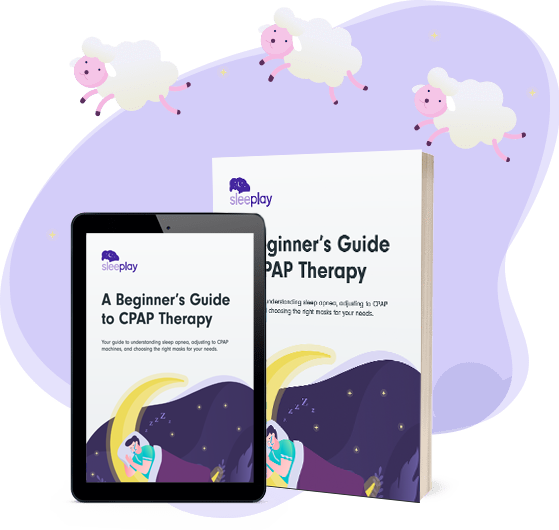
Get your guide to understanding sleep apnea, adjusting to CPAP machines, and choosing the right masks for your needs.


